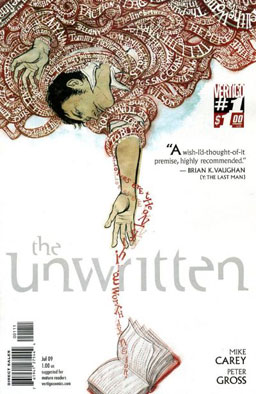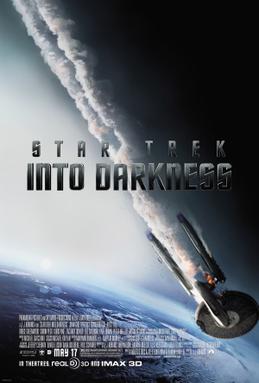Hawkeye by Matt Fraction and David Aja

I haven't devoured a book like this since Whedon's run on Astonishing X-Men. If you are like me, you probably don't know a lot about Clint Barton, AKA Hawkeye. To put it mildly, his character has been underutilized thus far in the Marvel Cinematic Universe. Even though he was technically one of the stars of The Avengers, his appearances felt like extended cameos. I kind of assumed it was because there isn't a lot to work with there. I mean, what can a really good sharpshooter (who uses a bow no less) bring to a team with whose roster includes a ballerina superspy, a paragon war hero, a one-man armored battalion, an invincible rage monster and a fucking Norse god?
Fraction recognizes this disparity and runs with it, though his run on Hawkeye is about what Clint does when he is not working with the Avengers. It talks about the everyday life of being a superhero. There are still bad guys to fight, but there is also hanging out in his apartment, errands, and actual human relationships. The closest thing I can approximate it to is Astro City, though I actually drastically prefer Hawkeye to that oft-revered series because the writing in the latter is so much wittier and the characters are so damn personable. I never felt like I would want to meet Samaritan, or anybody else from Astro City because they all struck me as one-note superhero caricatures; case studies to make witty observations about superhero comics. I would love to hang with both Clint Barton and Kate Bishop (who both operate under the name Hawkeye) because they are like real people.
Clint is actually kind of a perennial fuck-up. He does something dumb at least once per issue, but he also always manages to save the day anyway. He has a weird sense of humor, occasionally addressing inanimate objects when they frustrate him, and a refreshing self-awareness that never descends into whiny self-deprecation (see Spider-Man) or blatant metahumor (See Deadpool). Kate Bishop is his sassy, but devoted proteje, which sounds derivative and cliched but I dare you not to be charmed by her. The Tracksuits, Russian gangsters who wear (you guessed it) tracksuits, and punctuate every sentence with the word "Bro" are my new favorite flunkies. The entire comic has this excellent sense of humor.
And David Aja's art, my god! Panels aren't only expertly illustrated, but every page is beautifully designed. The ways this comic plays with color theory and panel layouts are absolutely genius. You could pretty much pick a page at random, frame it, put it on your wall, and you would catch eyes and garner compliments. Something as obvious and simple and mundane as phone conversation is presented in spectacular fashion.
I really cannot praise this book enough. If you are into comics or art or superheroes at all, snatch this series up immediately. Today. It will improve your week.
Locke & Key by Joe Hill and Gabriel Rodriguez

Locke & Key has one of those brilliant premises that would make any fantasy writer jealous. After a truly horrific tragedy, three siblings and their mom move to a house that is filled with strange keys. Keys that can turn back time, or allow you to open up your head and pull stuff out or put things in. Keys that can change your sex or race. Keys that can turn you into a ghost, or a giant or an animal. In addition, the kids are stalked by a cunning evil being known as Dodge, who is hunting for the Omega Key.
The series is ultimately horror-flavored, and rife with raw portrayals of violence and psychologically abrasive issues like grief, guilt, alcoholism, adolescent angst. While the dialog lacks the quippery and contemporary colloquialisms of say, Whedon or Fraction, it reads smart and makes the characters real. The pacing is perfect, with a satisfying blend of supernatural action, suspenseful plotting and frank emotional interactions. In many respects, I think Joe Hill has outdone his father (the famed Stephen King) in terms of moving the characters forward through the world and punctuating their journey with meaningful epiphanies. He is perfectly suited to the comic book form, though I am now interested in checking out his other work.
Horror is actually a brilliant genre for books starring adolescents because at that age, everything seems so damn serious and nothing makes any fucking sense--especially other people. It is also the age when you realize, quite abruptly and keenly, that your parents are totally fallible and probably just as flawed as you, though in different ways. All these issues are explored by the book in more than a superficial capacity.
Gabriel Rodriguez's art is actually kind of ugly, but in an intentional and refreshing way. Instead of the physical ideals of superhero comics, we have body types of every stripe, people with poor complexion, weirdly shaped faces, and punkish hair styles that are both endearing and off-putting. Again, these aesthetics are perfect for teenagers (and horror). Also, there's just something about the way Rodriguez does blood... it looks so damn thick and gross. The way he does violence in general is super visceral and compelling.
Again, this is definitely a series to pick up.
The Unwritten by Mike Carey and Peter Gross

The book is about a man named Tom Taylor, who may have been created from literature by his famous author father, who wrote a series of books that are obvious analogs to Harry Potter. Fiction and magic bleed into reality, history is manipulated by a cabal of evil motherfuckers who use stories to rule the world, and adventure ensues.
It took me a long time to really get into the series. I wasn't completely sold on it until volume 3, but now, having completed volume 7 I am very glad I've stuck along for the ride. I really resonate with the reverence of fiction, and the belief that stories shape our entire understanding of the world. English majors, particularly those with a creative writing bent, are very much the target audience.The alternate history stuff Carey throws in is fascinating, though the pacing feels a bit off-kilter. Most of the characters are also kind flat in terms of personality though, and while the plotting is super elaborate, the relationships are very straightforward.
I have become accustomed to Peter Gross' art style, though compared to the other two books in this binge, it doesn't do much for me. The characters always look extremely normal, with a few notable exceptions, such as Pullman and Savoy. When the comic wanders into fictional worlds, the art perks up a bit, though the colors are always a bit more muted than I would like. The stuff done with magic and things melting into text are really cool, and there are scenes of deeply intricate detail.
In conclusion, The Unwritten is well-worth reading if you are big into literature. Less so for general audiences.
In the coming months, I will be diving into both Preacher and the original Hellblazer because I have heard amazing things about both. I will also be delving deeper into Runaways which is off to a fairly promising start.






